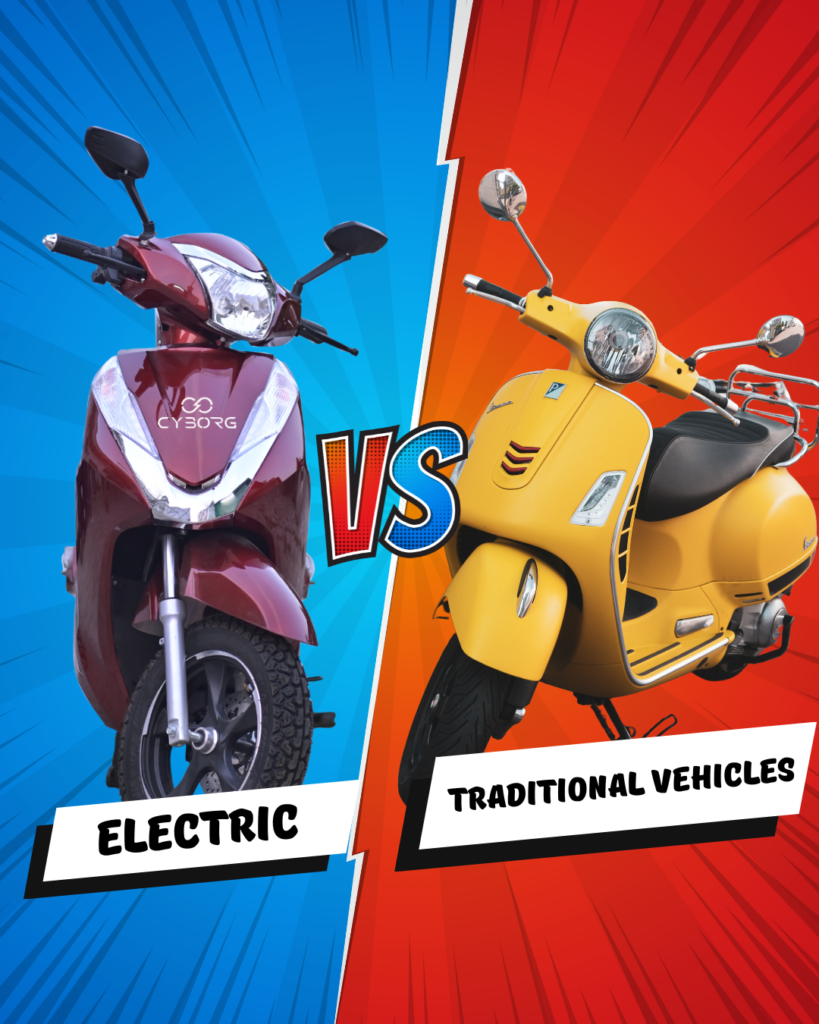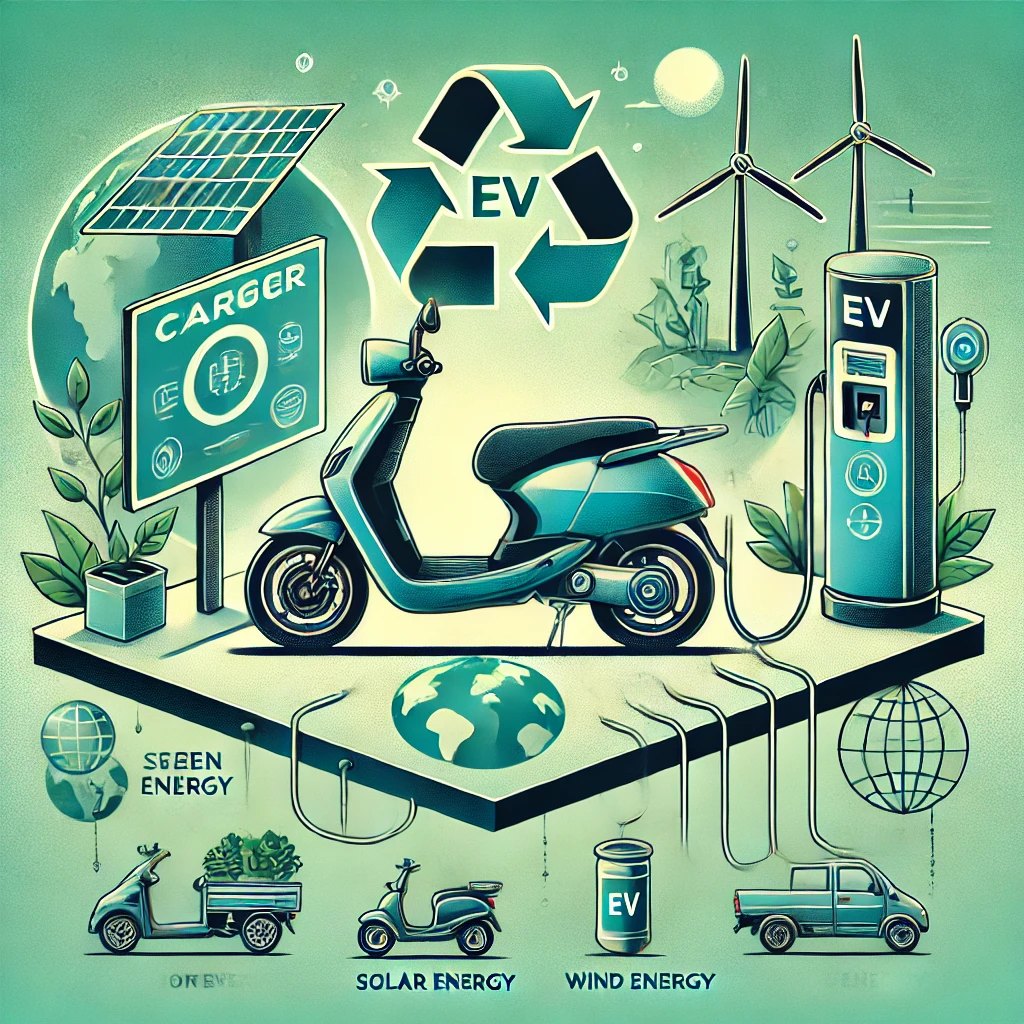Electric VS Traditional Vehicles

Which Is the Better Choice for the Environment?
In today’s world, the debate between electric vehicles (EVs) and traditional gasoline or diesel vehicles is becoming increasingly important. As environmental awareness grows, consumers are asking: which is truly the better choice for the planet? This blog will compare the environmental impact of electric vehicles and traditional vehicles, shedding light on the long-term benefits and challenges of each.
The Environmental Impact of Traditional Vehicles
Traditional internal combustion engine (ICE) vehicles rely on gasoline or diesel to power the engine. The process of extracting, refining, and burning fossil fuels contributes heavily to carbon emissions, which are the primary driver of global warming. According to the International Energy Agency (IEA), transportation is responsible for about 24% of global carbon dioxide emissions, with the majority coming from road vehicles.
In addition to emissions from burning fuel, the production of traditional vehicles is resource-intensive. The manufacturing process for ICE vehicles involves mining metals, refining materials, and assembling parts, all of which contribute to the vehicle’s environmental footprint.
How Electric Vehicles Are Different
Electric vehicles, on the other hand, operate entirely differently. Rather than relying on a combustion engine, EVs are powered by batteries that are charged from electricity sources. The major environmental benefit of EVs is their zero tailpipe emissions. Unlike traditional vehicles that release harmful pollutants like carbon dioxide (CO2), nitrogen oxides (NOx), and particulate matter into the atmosphere, EVs produce no direct emissions when driven.
However, the environmental impact of EVs is not limited to their emissions during use. It’s important to consider the entire lifecycle of the vehicle, from manufacturing to disposal. The production of EVs requires significant energy, especially in the manufacture of lithium-ion batteries. Mining and processing raw materials like lithium, cobalt, and nickel can have environmental and human rights concerns. However, the environmental impact of manufacturing EVs is still lower overall than that of traditional vehicles, and ongoing advancements in battery technology are working to reduce these impacts.
Battery Production and Recycling
The production of batteries for EVs is one of the most significant environmental challenges. The extraction of raw materials, such as lithium and cobalt, has been linked to environmental damage and ethical concerns. However, many companies, including CyborgEV, are working to improve the sustainability of battery production by sourcing materials responsibly and advancing recycling technologies.
Battery recycling is a critical aspect of EV sustainability. Currently, a significant portion of EV batteries is recyclable, and many automakers are investing in closed-loop systems to recover valuable materials like lithium, cobalt, and nickel. As battery recycling technology improves, the environmental impact of manufacturing EVs will continue to decrease, making them even more eco-friendly.

The Carbon Footprint of Charging
The environmental impact of electric vehicles also depends on the source of the electricity used to charge them. In regions where electricity is primarily generated from fossil fuels, the carbon footprint of charging an EV may be higher. However, as renewable energy sources like wind, solar, and hydro power continue to expand, the carbon footprint of charging EVs will decrease. The transition to clean energy is essential for maximizing the environmental benefits of EVs.
Long-Term Environmental Benefits
Despite the environmental challenges of battery production and charging infrastructure, EVs offer significant long-term benefits compared to traditional vehicles. Over the course of their lifecycle, EVs generally produce far fewer emissions, especially as the electricity grid becomes greener. Furthermore, EVs contribute to improved air quality in urban areas, where tailpipe emissions from ICE vehicles are a major source of pollution.
The Role of CyborgEV in Sustainable Transport
At CyborgEV, we are committed to minimizing the environmental impact of our vehicles from design to disposal. Our vehicles feature state-of-the-art battery technology that not only provides longer driving ranges but also prioritizes sustainability in sourcing and production. We work with trusted partners to ensure responsible sourcing of raw materials and have implemented comprehensive recycling initiatives to ensure the end-of-life impact of our batteries is minimized.
Conclusion
When comparing electric vehicles to traditional gasoline-powered vehicles, the clear winner in terms of environmental impact is electric vehicles. Although EVs do present some environmental challenges, such as battery production and recycling, these are far outweighed by the long-term benefits, especially as the global energy grid transitions to renewable sources. CyborgEV is proud to offer innovative electric vehicles that are at the forefront of this environmental revolution, helping to create a cleaner, greener world for future generations.
Quick Links
Quick Links
Product’s
- Two Wheeler
- E-Rickshaw
- E-Loader
Quick Links
- Terms & Conditions
- Privacy Policy

